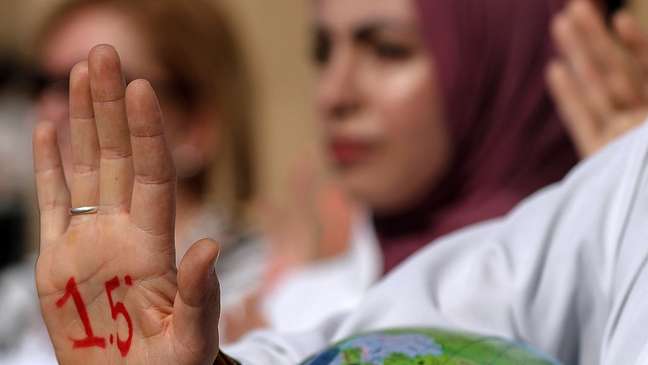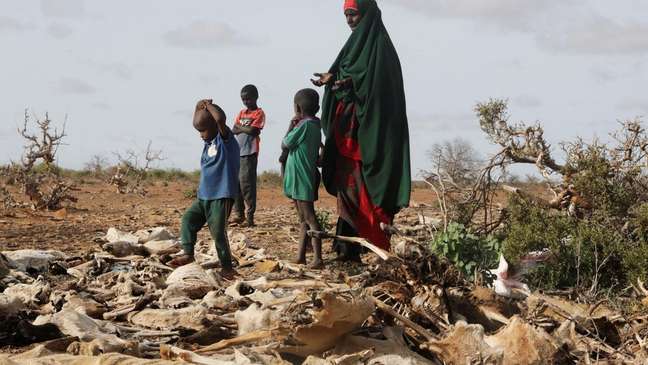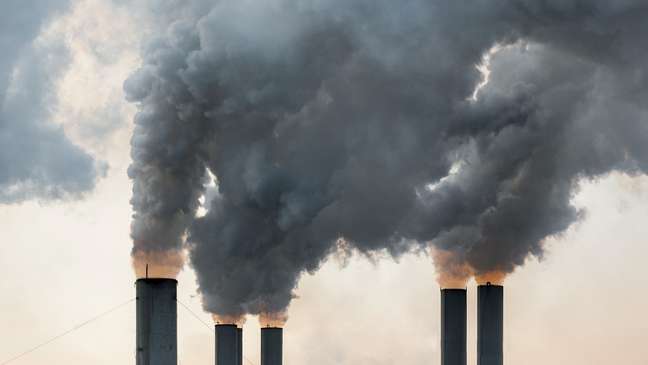For the first time in history, nearly 200 countries have decided to create a fund to compensate the nations most vulnerable to the consequences of climate disasters.

With the creation of a historic reparation fund, almost 200 countries reached an agreement this Sunday (20/11) to help the nations most affected by the catastrophic consequences of climate change.
After more than two weeks of intense negotiations, participants in the UN climate summit in Egypt, COP27, signed a pledge to finance a new fund to compensate for “losses and damages” caused by natural disasters in developing countries “particularly vulnerable to the negative effects of climate change”.
The agreement, which still has many details to be defined, supports the so-called “mosaic solution” requested by the negotiating block of the European Union, among other countries, which defends the possibility of resorting to new financial instruments to help pay for the damage caused by extreme phenomena of the climate crisis.
The debate on economic compensation for loss and damage has been a major deferred topic at climate summits held since the 1990s.
But given the rapid increase in extreme weather events and pressure from less developed countries, which are the least polluting, the issue has increasingly been at the center of the agenda.
At the start of the summit in the city of Sharm el Sheikh, it seemed almost impossible to reach an agreement for fears that a compensation scheme could open the door to possible multimillion-dollar claims in the future.
However, for the first time in history, there was agreement on this matter.

Who are the “particularly vulnerable”?
The fund will provide “predictable and adequate” funding to “particularly vulnerable developing countries”, according to the text defined during the meeting.
However, the document does not specify which countries will be able to benefit from the fund, nor the details of its financing mechanism, fundamental points that will be defined in future meetings.
A transition committee made up of 24 countries, including three from Latin America and the Caribbean, will elaborate the details of this initiative for one year, to define how it will work and how it will be financed, with the aim of adopting this measure from COP28, at the end of 2023.
Funding will fall substantially on rich countries, which have contributed most to global warming, but one of the lines of work agreed this Sunday includes “expanding sources of funding”, which would leave room for other countries to participate as donors, a request expressed by the European Union and Canada, among other nations.

The COP27 deal also calls on the World Bank and the International Monetary Fund (IMF) to provide “financing solutions”. However, he does not mention the possibility of forgoing foreign debt, for example, as a relief measure.
UN Secretary-General António Guterres said the deal was an “important step towards justice” but issued a key warning about the reparations fund. “Clearly this will not be enough, but it is a much-needed political signal to rebuild the shattered trust.”
Reduction of polluting emissions
Regardless of the creation of the fund, the European Union had expressed its willingness to make a greater commitment to reduce greenhouse gases, with an eye to China, which is currently the world’s largest emitter, responsible for almost 30% of the total.
This controversy was one of those that most delayed the conclusion of the summit, which was officially supposed to end on Friday.
In the end, the European Union failed to get its call to increase emissions reduction targets accepted, which left a bad taste in the mouths of those who defend this thesis.
Despite the historic financial compensation deal for the poorest countries, the summit “did not raise the ambition to address the root cause of climate change: the greenhouse gas emissions that are warming our planet,” said Justin Rowlatt, director of the BBC’s climate affairs.
In fact, added the curator, there has been the introduction of a new category of “low emissions” energy, which could make “many believe that they have gone back on what was agreed at the last UN climate conference in Glasgow “, evaluates.
“It means that what could have been a boon for Egypt risks ending up being considered a failure,” Rowlatt said.
In the 2015 Paris Agreement, countries pledged to try to keep global warming to 1.5 degrees Celsius. And more ambitious plans to reduce these emissions, including reducing the use of fossil fuels, were expected over the years, but this has not happened.
For now, a number of countries have individually committed to net-zero carbon emissions by 2050. This means reducing greenhouse gas emissions as much as possible and balancing remaining emissions.
– This text was published in https://www.bbc.com/portuguese/internacional-63693858
🇧🇷The best content in your email for free. Choose your favorite Terra newsletter. Click here!
Source: Terra
Camila Luna is a writer at Gossipify, where she covers the latest movies and television series. With a passion for all things entertainment, Camila brings her unique perspective to her writing and offers readers an inside look at the industry. Camila is a graduate from the University of California, Los Angeles (UCLA) with a degree in English and is also a avid movie watcher.






